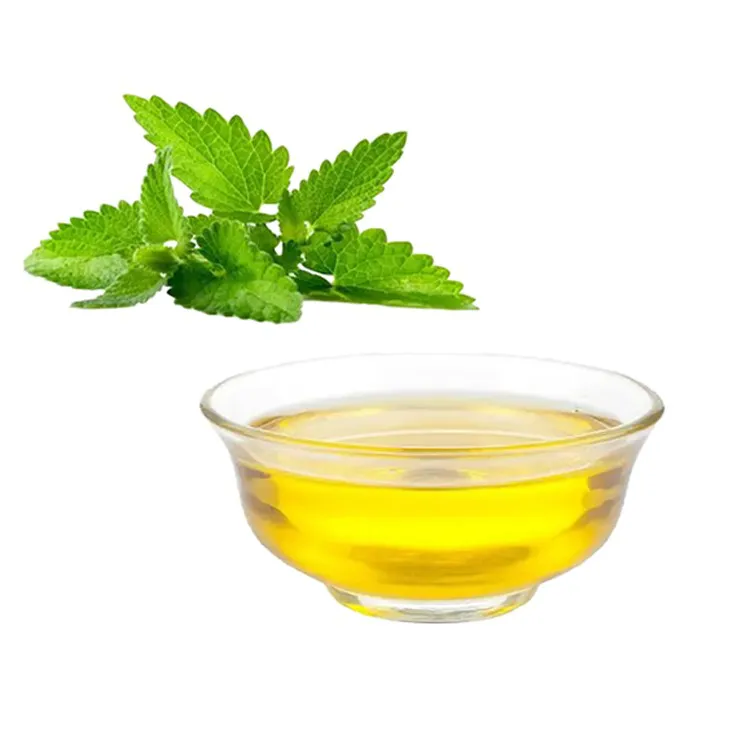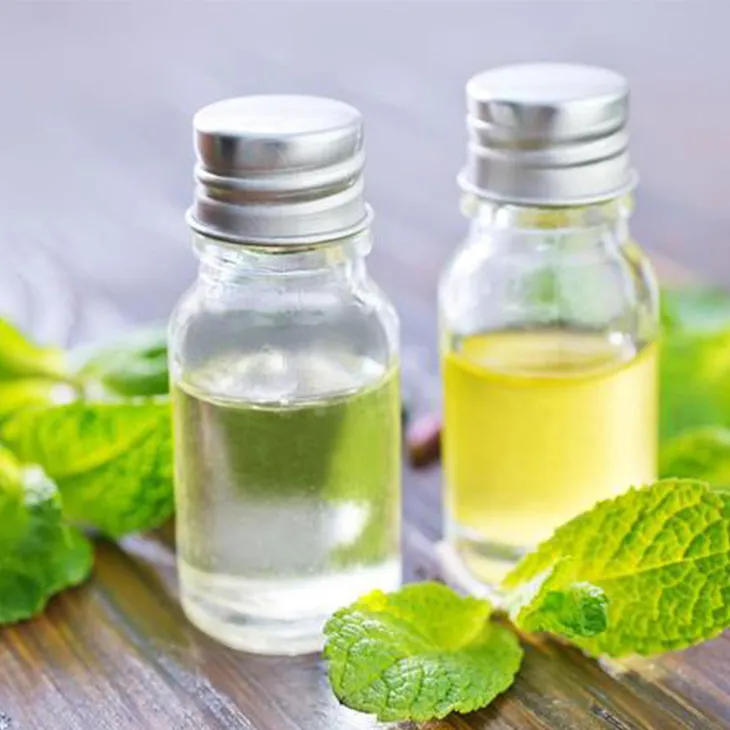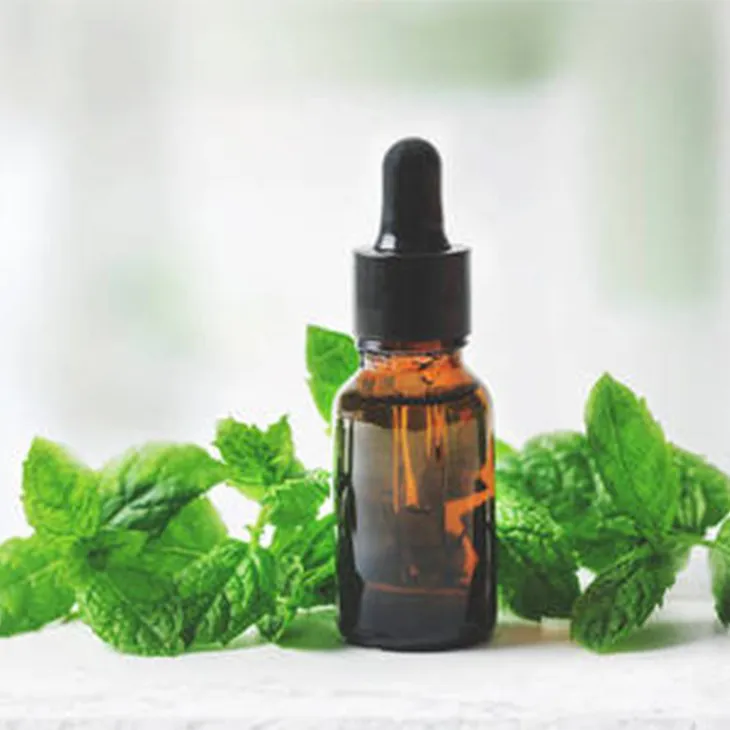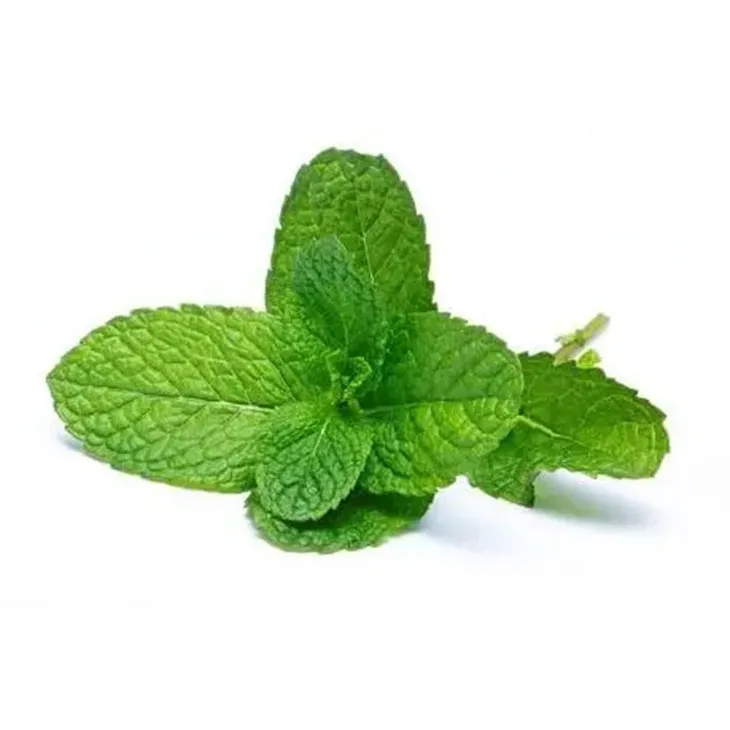- 0086-571-85302990
- sales@greenskybio.com
The Benefits of Peppermint Oil in Cattle Feed.
2024-11-11

1. Introduction
In the realm of cattle farming, the quality of feed plays a crucial role in the overall health, productivity, and well - being of the cattle. Peppermint Oil has emerged as an interesting addition to cattle feed, with a range of potential benefits. This article will explore in detail the various advantages that Peppermint Oil can bring when included in cattle feed.

2. Digestive Aid
2.1 Stimulation of Digestive Juices
One of the primary benefits of Peppermint Oil in cattle feed is its role in aiding digestion. Cows, like all animals, rely on a complex digestive system to break down food and extract nutrients. Peppermint oil has the ability to stimulate the secretion of digestive juices such as saliva, gastric juices, and bile. For example, the menthol present in peppermint oil can trigger the salivary glands to produce more saliva. Saliva contains enzymes that start the process of breaking down carbohydrates in the feed even before it reaches the stomach.2.2 Improved Nutrient Absorption
By enhancing the production of digestive juices, peppermint oil also contributes to better nutrient absorption. When the feed is more effectively broken down in the digestive tract, the nutrients are more readily available for absorption into the bloodstream. This is especially important for key nutrients like proteins, fats, and vitamins. For instance, better digestion of proteins means that the cows can utilize the amino acids for muscle growth, milk production, and overall body maintenance.
3. Stress Reduction
3.1 The Impact of Stress on Cattle
Stress can have a negative impact on cattle. It can lead to reduced feed intake, lower growth rates, and decreased milk production. There are various factors that can cause stress in cattle, including changes in their environment, handling procedures, and the quality of feed. Cattle that are stressed are also more susceptible to diseases.3.2 How Peppermint Oil Reduces Stress
The pleasant smell of peppermint oil can have a calming effect on cattle. When cows are exposed to the aroma during the feeding process, it can help to reduce their stress levels. This is thought to be related to the way that the olfactory system in cows interacts with the compounds in peppermint oil. Just as certain scents can have a relaxing effect on humans, the same principle applies to cattle. By reducing stress, peppermint oil in the feed can lead to more consistent feed intake, better growth, and improved productivity.
4. Disease Prevention
4.1 Common Diseases in Cows
Cows are prone to a number of common diseases, such as mastitis (an infection of the udder), respiratory infections, and digestive disorders. These diseases can have a significant impact on the quality of beef and milk production, as well as the overall health of the herd.4.2 Peppermint Oil's Role in Disease Prevention
Peppermint oil may play a role in preventing some of these common diseases. It has antimicrobial properties that can help to inhibit the growth of harmful bacteria and fungi in the digestive tract and other parts of the cow's body. For example, it may prevent the overgrowth of bacteria that can cause digestive problems. Additionally, by reducing stress (as mentioned earlier), peppermint oil can also indirectly help to prevent diseases, since stressed animals are more likely to get sick.
5. Impact on Beef and Milk Quality
5.1 Beef Quality
The presence of peppermint oil in cattle feed can have a positive impact on beef quality. Cattle that are healthier, due to better digestion, reduced stress, and disease prevention, are likely to produce higher - quality beef. For example, the meat may be more tender, have a better flavor, and be more nutritious. The improved nutrient absorption resulting from peppermint oil in the feed can lead to a more favorable fat distribution in the meat, which can enhance its taste and texture.5.2 Milk Quality
In terms of milk production, cows fed with peppermint - oil - supplemented feed may produce milk of better quality. The reduction in stress and the prevention of diseases can lead to a more stable milk production cycle. Moreover, the improved digestion can result in a higher nutrient content in the milk. For instance, the milk may have a higher protein and fat content, which are important factors for dairy products such as cheese and butter.6. Dosage and Administration
6.1 Determining the Right Dosage
When adding peppermint oil to cattle feed, it is crucial to determine the appropriate dosage. The dosage may vary depending on factors such as the age, weight, and overall health of the cattle. Too little peppermint oil may not provide the full range of benefits, while too much could potentially have negative effects. For example, in young calves, a lower dosage may be sufficient, while larger, adult cows may require a slightly higher amount.6.2 Methods of Administration
There are different methods of administering peppermint oil in cattle feed. It can be directly mixed into the feed during the preparation process. Another option is to use a spray - on method, where a diluted solution of peppermint oil is sprayed onto the feed. However, it is important to ensure that the peppermint oil is evenly distributed throughout the feed to ensure that all the cattle receive an appropriate amount.7. Safety Considerations
7.1 Potential Allergic Reactions
Although peppermint oil is generally considered safe for cattle, there is a possibility of allergic reactions in some individual animals. Signs of an allergic reaction may include skin rashes, difficulty breathing, or reduced feed intake. It is important for farmers to monitor their cattle closely when first introducing peppermint oil to the feed. If any signs of an allergic reaction are observed, the use of peppermint oil should be discontinued immediately.7.2 Interaction with Other Feed Components
Peppermint oil may also interact with other components in the cattle feed. For example, it could potentially affect the stability or effectiveness of certain vitamins or medications that are also present in the feed. Therefore, it is necessary to consider these interactions when formulating the feed. It may be advisable to consult a veterinarian or an animal nutritionist to ensure that the addition of peppermint oil does not cause any adverse effects due to these interactions.8. Conclusion
In conclusion, peppermint oil in cattle feed offers a variety of benefits. It aids in digestion, reduces stress, may prevent diseases, and has a positive impact on the quality of beef and milk production. However, proper dosage, administration, and safety considerations are essential to ensure that these benefits are maximized while minimizing any potential risks. With further research and proper implementation, peppermint oil could become an increasingly important component in cattle feed in the future.
FAQ:
Question 1: How does peppermint oil stimulate the secretion of digestive juices in cows?
Peppermint oil contains certain compounds that interact with the receptors in the digestive system of cows. This interaction sends signals to the body to start the production and secretion of digestive juices, which helps in better breakdown and absorption of food.
Question 2: Can peppermint oil completely eliminate stress in cattle during feeding?
No, it cannot completely eliminate stress. However, its pleasant smell can have a calming effect on cattle, reducing the level of stress during the feeding process. This helps the cattle to be more relaxed and comfortable while eating.
Question 3: What are the common diseases in cows that peppermint oil can help prevent?
Peppermint oil may help prevent some digestive - related diseases such as indigestion and bloat. It also might have some antimicrobial properties that can assist in warding off certain infections in the digestive tract.
Question 4: How does the use of peppermint oil in cattle feed affect the taste of beef and milk?
There is no evidence to suggest that the use of peppermint oil in cattle feed has a negative impact on the taste of beef and milk. In fact, if it helps in improving the health of the cows by preventing diseases and reducing stress, it may potentially contribute to better - quality beef and milk production.
Question 5: What is the appropriate amount of peppermint oil to add to cattle feed?
The appropriate amount can vary depending on factors such as the age, weight, and overall health of the cattle. Generally, it should be added in small amounts, usually within a range of a few milliliters per kilogram of feed. However, more research is needed to determine the exact optimal dosage.
Related literature
- The Role of Essential Oils in Cattle Nutrition"
- "Peppermint Oil and Its Impact on Livestock Health"
- "Beneficial Additives in Cattle Feed: Peppermint Oil as an Example"
- ▶ Hesperidin
- ▶ citrus bioflavonoids
- ▶ plant extract
- ▶ lycopene
- ▶ Diosmin
- ▶ Grape seed extract
- ▶ Sea buckthorn Juice Powder
- ▶ Beetroot powder
- ▶ Hops Extract
- ▶ Artichoke Extract
- ▶ Reishi mushroom extract
- ▶ Astaxanthin
- ▶ Green Tea Extract
- ▶ Curcumin Extract
- ▶ Horse Chestnut Extract
- ▶ Other Problems
- ▶ Boswellia Serrata Extract
- ▶ Resveratrol Extract
- ▶ Marigold Extract
- ▶ Grape Leaf Extract
- ▶ blog3
- ▶ blog4
- ▶ blog5
-
Organic Tongkat Ali extract powder factory.
2024-11-11
-
How to make powder with ashwagandha extract.
2024-11-11
-
Rosehip extract manufacturers from China.
2024-11-11
-
The best cat's claw extract in nature.
2024-11-11
-
Chinese Dandelion Leaf Extract Suppliers.
2024-11-11
-
Tinospora cordifolia extract
2024-11-11
-
Europen Bilberry Extract
2024-11-11
-
Feverfew Extract
2024-11-11
-
Uridine-5'-monophosphate Disodium salt
2024-11-11
-
Tongkat Ali Extract Powder
2024-11-11
-
Curcuma Longa Extract/Turmeric extract
2024-11-11
-
Sophora Japonica Flower Extract
2024-11-11
-
Maca Extract
2024-11-11
-
Horse Chestnut Extract
2024-11-11
-
Thunder God Vine Extract
2024-11-11





















